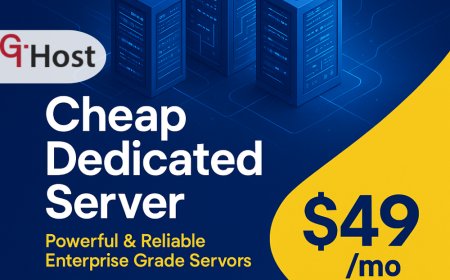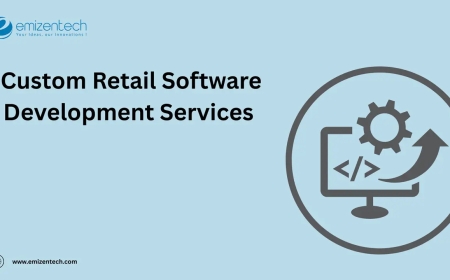Investors Email List: A Comprehensive Guide to Building and Leveraging an Investor Database
An Investors Email List serves as a powerful tool in achieving this goal, allowing businesses to establish direct communication with individuals or institutions who are actively looking to invest in viable opportunities.

In todays data-driven economy, targeted marketing has become the cornerstone of successful business strategies. For startups, real estate firms, financial services, and entrepreneurs seeking funding, connecting directly with the right audience is critical. An Investors Email List serves as a powerful tool in achieving this goal, allowing businesses to establish direct communication with individuals or institutions who are actively looking to invest in viable opportunities.
This guide explores everything you need to know about the Investors Email List from its definition and benefits to strategies for acquisition, compliance, and effective usage.
What is an Investors Email List?
An Investors Email List is a curated database of email addresses belonging to individuals, angel investors, venture capitalists, private equity firms, and institutional investors who are interested in investing in various industries and ventures. These lists often include additional contact data such as names, titles, company affiliations, investment preferences, geographical locations, and sometimes phone numbers or LinkedIn profiles.
These lists are used by businesses to:
-
Pitch startups or new products.
-
Raise capital for business expansion.
-
Promote real estate, stocks, or crowdfunding campaigns.
-
Offer financial services or investor relations tools.
Types of Investors Included in the List
A quality investors list can cover a wide range of investor types, such as:
-
Angel Investors High-net-worth individuals who fund early-stage startups.
-
Venture Capitalists (VCs) Firms or individuals investing in scalable, high-growth startups.
-
Private Equity (PE) Firms Investors in mature companies or distressed assets.
-
Real Estate Investors Individuals or firms investing in commercial or residential properties.
-
Institutional Investors Insurance companies, pension funds, hedge funds.
-
Crowdfunding Backers Active contributors on platforms like Kickstarter, SeedInvest, or StartEngine.
-
Crypto Investors Individuals or funds investing in blockchain and digital assets.
Benefits of Using an Investors Email List
1. Direct Outreach:
Having access to a well-compiled investors email list gives businesses a direct line to potential investors without intermediaries. This saves time and increases the chances of getting noticed.
2. Precision Targeting:
You can segment the list by industry preference, location, investment size, or funding stage to send customized emails that resonate with specific investor interests.
3. Cost-Effective Marketing:
Compared to traditional advertising or networking events, email outreach is much more affordable, offering higher ROI when properly executed.
4. Scalability:
Whether you're a startup seeking seed funding or a corporation launching a new fund, an email list allows you to reach hundreds or thousands of investors instantly.
5. Measurable Results:
With email marketing tools, you can track open rates, click-through rates, and conversion rates, helping you refine your strategy.
How to Build an Investors Email List
If you dont want to purchase a list, building your own email list organically ensures better accuracy and compliance. Heres how:
1. Networking Events & Conferences:
Attend startup summits, investor meetups, and industry expos to collect contact information from interested investors.
2. LinkedIn & Online Platforms:
Use LinkedIn Sales Navigator or investor networks like AngelList, Crunchbase, and PitchBook to identify investors and connect with them.
3. Webinars and Workshops:
Host investment-focused webinars or educational sessions where attendees register with their email addresses.
4. Lead Magnets & Landing Pages:
Offer free investment guides, pitch decks, or industry reports in exchange for contact info through opt-in forms.
5. Referral Systems:
Ask existing investors to refer others within their network in return for exclusive offers or early access to opportunities.
Buying an Investors Email List: What to Look For
If you opt to purchase an investor list, be cautious and selective. Make sure the list provider offers:
-
Verified and updated data (within the last 36 months)
-
Segmented information (e.g., industry, investment range, location)
-
Compliance with GDPR, CAN-SPAM, and other data privacy laws
-
High deliverability and low bounce rates
-
Transparent data sources
Some popular vendors in the B2B data industry include ZoomInfo, UpLead, Bookyourdata, and Apollo.io.
How to Use an Investors Email List Effectively
An investor email list is only as good as the strategy used to approach it. Here are a few best practices:
1. Craft a Compelling Subject Line:
Your subject line should clearly communicate value and create curiosity. Avoid spammy or clickbait terms.
2. Personalize the Message:
Use the investors name, mention their previous investments, or tailor the content to their focus areas.
3. Include a Strong Value Proposition:
Clearly explain what youre offering, how it benefits the investor, and what sets your opportunity apart.
4. Keep it Short and Clear:
Investors are busy. Stick to the key points who you are, what you offer, how much funding you need, and what returns or impact are expected.
5. Add a Clear Call-to-Action (CTA):
Encourage them to schedule a call, reply to the email, or visit a pitch deck or website.
6. Follow Up Respectfully:
Send 2-3 follow-ups over a few weeks. If theres no response after that, consider moving them to a different segment or revisit later.
Compliance and Ethical Considerations
Using or buying email lists involves responsibility. Here are some compliance essentials:
-
GDPR (EU): Requires clear opt-in consent for European investors.
-
CAN-SPAM (US): Mandates accurate sender info, opt-out options, and no deceptive subject lines.
-
CASL (Canada): Requires express or implied consent for commercial emails.
To stay compliant:
-
Use opt-in methods where possible.
-
Provide unsubscribe links in every email.
-
Avoid sending to outdated or scraped contacts.
Industries That Benefit Most from Investors Email Lists
Several industries rely on investor outreach to fuel growth:
-
Startups and SaaS companies
-
Real Estate Developers
-
Healthcare and Biotech Ventures
-
Energy and CleanTech Firms
-
Fintech and Blockchain Projects
-
Media and Entertainment Startups
Regardless of industry, the ability to reach the right investor at the right time can make or break your funding efforts.
Conclusion
An Investors Email List can be a game-changer for businesses looking to attract funding, forge strategic partnerships, or sell high-value financial products. Whether you build one organically or purchase it from a reliable provider, the key lies in using it strategically and ethically.
By combining personalization, compliance, and compelling messaging, you can convert cold contacts into warm leads and ultimately, into long-term investor relationships.
With the right list in hand and a well-executed outreach campaign, your next investor could be just one email away.




































